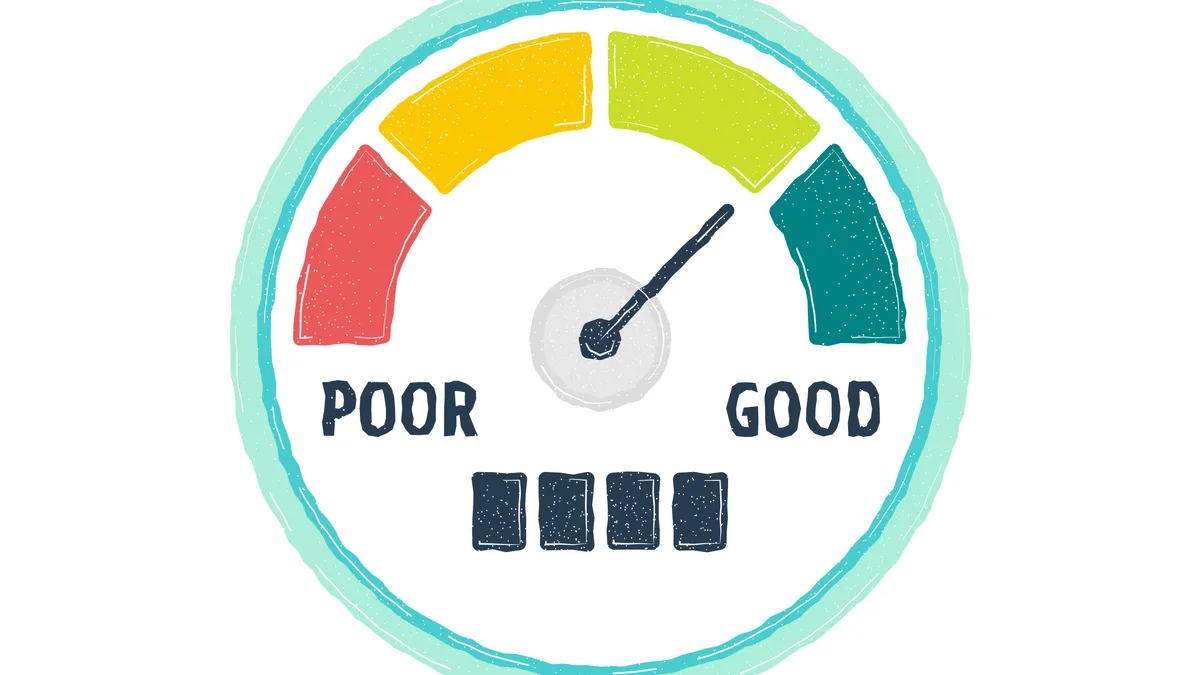Home>Finance>How Much Does Credit Utilization Account For In Your Credit Score


Finance
How Much Does Credit Utilization Account For In Your Credit Score
Published: March 6, 2024
Learn the impact of credit utilization on your credit score and how it affects your overall financial health. Understand the importance of managing your credit wisely.
(Many of the links in this article redirect to a specific reviewed product. Your purchase of these products through affiliate links helps to generate commission for LiveWell, at no extra cost. Learn more)
Table of Contents
Introduction
Welcome to the complex world of credit scores, where various factors come into play to determine your financial trustworthiness. One crucial aspect that significantly influences your credit score is credit utilization. Understanding the impact of credit utilization on your credit score is essential for maintaining a healthy financial profile. In this article, we will explore the concept of credit utilization, its effects on your credit score, the ideal credit utilization ratio, and practical tips for managing it effectively.
Many individuals are unaware of the pivotal role that credit utilization plays in shaping their credit scores. By shedding light on this often overlooked factor, we aim to empower you with the knowledge needed to make informed decisions and take proactive steps to improve your creditworthiness.
As we delve into the intricacies of credit utilization, you’ll gain valuable insights into how your credit card balances and spending habits can impact your overall financial standing. By the end of this article, you’ll be equipped with actionable strategies for managing credit utilization and optimizing your credit score.
What is Credit Utilization?
Credit utilization refers to the ratio of your credit card balances to your credit limits. In simpler terms, it reflects how much of your available credit you are using at any given time. This metric holds significant weight in the calculation of your credit score, as it provides insights into your borrowing habits and financial responsibility.
When you carry credit card balances or utilize a large portion of your available credit, it can signal potential risk to lenders. High credit utilization may indicate financial strain or an overreliance on credit, which can raise concerns about your ability to manage debt responsibly. On the other hand, low credit utilization demonstrates prudent financial behavior and responsible credit management.
Understanding credit utilization involves recognizing its impact on your overall financial health. By keeping your credit utilization in check, you can positively influence your credit score and bolster your financial standing. As we explore the intricacies of credit utilization, you’ll gain a deeper understanding of how this factor influences your creditworthiness and shapes lenders’ perceptions of your financial reliability.
How Credit Utilization Affects Your Credit Score
Credit utilization plays a pivotal role in determining your credit score, exerting a significant influence on this crucial financial metric. The impact of credit utilization on your credit score is substantial, as it accounts for approximately 30% of the FICO score calculation, making it one of the most influential factors alongside payment history.
High credit utilization, characterized by maxed-out or heavily utilized credit lines, can have a detrimental effect on your credit score. When your credit utilization ratio exceeds 30%, it may signal to lenders that you are heavily reliant on credit and potentially struggling to manage your finances. As a result, your credit score may experience a noticeable decline, impacting your ability to secure favorable loan terms and financial opportunities.
Conversely, maintaining a low credit utilization ratio demonstrates responsible credit management and can positively impact your credit score. By keeping your credit utilization below 30% and ideally under 10%, you send a reassuring signal to creditors that you are using credit conservatively and managing your finances prudently. This can contribute to an improved credit score and enhance your financial credibility in the eyes of lenders.
It’s important to note that credit utilization is not solely based on your overall utilization across all credit accounts. Lenders also consider the utilization of individual credit cards and lines of credit. Therefore, managing the utilization of each credit account effectively is crucial for optimizing your credit score and maintaining a healthy financial profile.
By comprehending the intricate relationship between credit utilization and your credit score, you can proactively manage this factor to positively influence your creditworthiness and strengthen your financial foundation.
The Ideal Credit Utilization Ratio
The ideal credit utilization ratio is a key benchmark that reflects responsible credit management and can significantly impact your credit score. While there is no one-size-fits-all ratio that guarantees an optimal score, financial experts generally recommend maintaining a credit utilization ratio below 30%. However, striving for an even lower ratio, ideally under 10%, can yield greater benefits and signal to lenders that you are effectively managing your credit.
By keeping your credit utilization low, you demonstrate prudent financial behavior and mitigate the perceived risk associated with high credit balances. Lenders interpret a low utilization ratio as an indicator of financial stability and responsible credit usage, which can bolster your credit score and enhance your overall financial standing.
It’s important to note that the ideal credit utilization ratio applies not only to your overall credit usage but also to individual credit accounts. Effectively managing the utilization of each credit card and line of credit contributes to maintaining an optimal credit utilization ratio across your entire financial portfolio.
Striving to keep your credit utilization ratio within the recommended thresholds can position you favorably in the eyes of creditors and credit scoring models. By adhering to these guidelines, you can actively work towards optimizing your credit score and fortifying your financial credibility.
Tips for Managing Credit Utilization
Effectively managing your credit utilization is crucial for maintaining a healthy credit score and demonstrating responsible financial behavior. By implementing the following tips, you can proactively control your credit utilization and optimize your creditworthiness:
- Regularly Monitor Your Credit Balances: Stay vigilant about your credit card balances and ensure they align with your budget and financial goals. Regular monitoring allows you to identify any deviations from your intended credit utilization and take corrective action promptly.
- Strategically Distribute Your Spending: Instead of heavily utilizing a single credit card, consider spreading your expenses across multiple cards to keep individual utilization levels in check. This approach can help maintain balanced utilization across your credit accounts.
- Request Credit Limit Increases: Contact your credit card issuers to inquire about potential credit limit increases. A higher total credit limit can lower your overall credit utilization ratio, provided your spending remains consistent, thereby positively impacting your credit score.
- Pay Balances Multiple Times a Month: Making multiple payments throughout the month can help keep your credit card balances in check and prevent high utilization ratios from being reported to credit bureaus at the end of the billing cycle.
- Use Credit Wisely: Exercise prudence when utilizing credit and aim to keep your balances well below the credit limits. Responsible credit usage not only maintains a favorable credit utilization ratio but also reflects positively on your financial discipline.
- Consider a Balance Transfer: If feasible, explore the option of transferring high-interest credit card balances to a card with a lower interest rate. This can alleviate financial strain and contribute to a more favorable credit utilization ratio.
By incorporating these strategies into your financial management practices, you can effectively manage your credit utilization, improve your credit score, and establish a solid foundation for your financial future.
Conclusion
Understanding the intricacies of credit utilization is paramount for anyone aiming to maintain a healthy credit score and secure favorable financial opportunities. The impact of credit utilization on your credit score cannot be overstated, as it serves as a crucial indicator of your financial responsibility and credit management habits.
By recognizing the ideal credit utilization ratio and implementing proactive strategies to manage your credit utilization effectively, you can positively influence your credit score and enhance your financial credibility. Maintaining a low credit utilization ratio, ideally below 30% and preferably under 10%, demonstrates prudent financial behavior and can position you favorably in the eyes of lenders and credit scoring models.
Regularly monitoring your credit balances, strategically distributing your spending across credit accounts, and responsibly utilizing credit are essential practices for managing credit utilization. Additionally, exploring options such as requesting credit limit increases and considering balance transfers can contribute to optimizing your credit utilization ratio and fortifying your financial standing.
By adhering to these principles and leveraging the insights provided in this article, you can navigate the complexities of credit utilization with confidence and take proactive steps to enhance your creditworthiness. Empowered with this knowledge, you are equipped to make informed financial decisions and cultivate a strong financial foundation for the future.
Remember, managing credit utilization is not just about improving your credit score; it’s about cultivating sound financial habits that pave the way for long-term financial stability and success.














